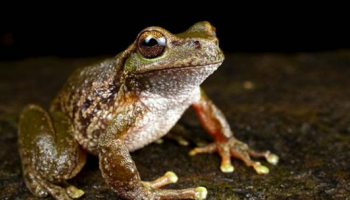Scientists have been telling us for years that climate change is real. Yet collectively we are doing very little to reduce the environmental degradation. Climate change is scary and life altering but we are the generation that can actually solve it.
Let the facts speak for themselves. The world has already lost 80% of its forests. Half of the earth’s species have become extinct in the past forty years. In the history of humankind there has never been this much carbon in our atmosphere. We have already lost 27% of our coral reefs and at this rate all of the reefs will be gone in 30 years. Over three quarters of energy utilised is from non-renewable fossil fuels sources. We have an island of plastics floating in our oceans the size of India, Europe, and Mexico combined. Reading these facts leaves you feeling numb; it is easier for us to check social media and watch a cute dog video than confront the reality of our looming climate disaster.
How did we get here? Simply, climate change is a human-made disaster. Our direct abuse and disregard for the complicated and sensitive ecosystem we occupy has led to the environment responding with detrimental effects. Right now we are existing in an ‘Anthropocene’, traced back to the early 1800s. This is a new geological age characterised by humans pumping so much carbon dioxide in our atmosphere that we have extensively reshaped the planet’s environment.
There are two fundamental science terms to grasp to understand climate science; the greenhouse effect and fossil fuels. The greenhouse effect occurs when sunlight passes through our atmosphere and shines down on Earth. When it hits the surface, it gets absorbed by the Earth and released as heat. Greenhouse gases in our atmosphere trap that heat, holding that warmth close to the surface that otherwise would have escaped into space. We need the greenhouse effect otherwise we would be as cold as ice, literally. These are a few of the main greenhouse gases; carbon dioxide (CO2), water vapor (H2O), methane (CH4) and ozone (O3). The earth has an internal thermostat that is now completely off kilter; most of the earth’s warming has occurred since the 1970s with 16 of the warmest years occurring since 2000. And the reason it is hotting up is due to fossil fuels; coal, oil, and natural gas that our modern lives require. However, when we burn fossil fuels it produces CO2, and more CO2 means more heat trapped in our atmosphere, compounding the greenhouse effect.
This is not our fault. We were born into a world obsessed with consumption. A consumerist culture encouraging us through advertising to continually buy materialistic products we don’t need, with money we don’t have, to power with energy that is destroying the air you are breathing. We do have a responsibility to ensure our planet’s future exists and the means to do so are remarkably easy despite the enormity of the otherwise catastrophic future we could inhabit; a world changed beyond recognition, with large areas uninhabitable, climate refugees, extreme weather conditions and extensive starvation.
On an everyday level you can reduce your impact on the climate. When you shower, cut it short with a four-minute maximum rule. Reduce your waste. Thrift shop instead of buying clothes from companies that use fast fashion ethics and always donate your goods to thrift shops instead of putting them into landfill. Don’t buy every trendy clothing item or homewares cushion. If you think about it, the space that cushion occupies on your couch equals a whole lot more space in reality; the fabric is farmed overseas, transported to Australia and occupies the landfill it is sent to when your Instagram idol promotes the next season cushions release you just ‘need’. There are myriads of ways to use less energy or to get our energy from cleaner, renewable sources. Did you know the Earth gets more energy from the Sun in an hour than the whole planet uses in a year?
Reduce your meat consumption. The farmed meat you are eating is detrimental for the environment. If meat consumption increases at current rates, GHG emissions from agriculture will have increased 76% by 2050 global. If we all reduced meat consumption by 25%, it could result in a 51% decline in agricultural GHG emissions over the same period. Consider a ‘Climatarian diet’; less meat, less heat. And if you feel you cannot survive without red meat consider kangaroo meat, a sustainable meat alternative.
The climate crisis is unfair because those that have done the least to cause the problem will feel the effects first and worst. The affluent control the largest pollutants and live lifestyles at a comfortable distance from, for example, Bangladesh – which will have 20% of its land mass uninhabitable by 2099.
As young citizens in a position with power to make a difference, our voices can speak out in a multitude of ways to make an impact. Get involved with the ‘Australian Youth Climate Coalition’; write a letter to a local member of parliament voicing your dissatisfaction; attend climate rallies; support political parties whom align with your climate action beliefs and talk about your opinions far and wide. We need to live sustainably and justly in a healthy environment, diverse with nature and within a community united in a common goal – our future is ours and our earth is our responsibility.


